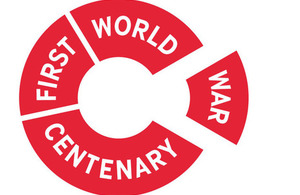Paving stones laid to remember Attack on Zeebrugge heroes
Eight British servicemen awarded the Victoria Cross will be remembered by communities in ceremonies across the country.

First World War Centenary
Eight British servicemen awarded the Victoria Cross (VC) for their actions during the heroic Attack on Zeebrugge in Belgium 100 years ago will be remembered by communities in ceremonies across the country on 22 to 23 April.
As part of the government’s First World War centenary programme, the special ceremonies will see commemorative paving stones laid in honour of those that sacrificed so much for our freedom. The memorials will provide a lasting legacy to the bravery of these young men during one of the most daring raids of the First World War, and will allow communities to honour their hometown heroes.
The Attack on Zeebrugge was an audacious attempt to block German U-boat access to the English Channel from where they were causing sustained damage to allied military and commercial vessels.
As night fell on the 22 April 1918, a makeshift armada of modern destroyers, submarines and ships, including 2 Mersey passenger ferries, set sail across the Channel toward the Port of Zeebrugge where they intended to sink 3 cruisers in order to block the canal exit to the port.
The raid failed with a tragic loss of life but is symbolic of the bravery of British servicemen during the First World War. Over 200 men are thought to have been killed and more than 300 wounded.
Marking the centenary of the Attack on Zeebrugge, Communities Minister Lord Bourne said:
In the trenches and upon the seas, British servicemen sacrificed their lives to protect families, friends and communities at home. We owe them all a huge debt of gratitude.
That is never more evident than when reflecting on the events of the heroic Attack on Zeebrugge 100 years ago and reading the moving accounts of supreme gallantry and courage.
We have a duty to remember all who gave their lives and each memorial will enable residents to gain a greater understanding of how their area and people of all backgrounds contributed to the history of the First World War.
Amongst those remembered will be Lieutenant-Commander George Nicholson Bradford, whose Victoria Cross Paving Stone will be laid alongside that of his younger brother, Brigadier General Roland Boys Bradford in Witton Park, County Durham. The ‘Fighting Bradford’s were the only brothers to be both awarded the medal during the First World War.
His citation reads:
Lieut.-Commander Bradford’s action was one of absolute self-sacrifice; without a moment’s hesitation he went to certain death, recognising that in such action lay the only possible chance of securing “Iris II” – one of the two Mersey ferries - and enabling her storming parties to land.
The 7 further Victoria Cross recipients from the Attack on Zeebrugge were:
Commander (Acting Captain) Alfred Francis Carpenter, RN Able Seaman Albert McKenzie Lieutenant-Commander Arthur Harrison, RN Captain Edward Bamford, DSO, RMLI Serjeant Norman Finch, RMA Lieutenant Percy Dean, RNVR Lieutenant Richard Sandford, RN
A further 11 British servicemen will be remembered with Victoria Cross paving stones throughout April as part of the government’s First World War centenary programme.
Further information
The Ministry of Housing, Communities and Local Government is running a campaign to honour Victoria Cross recipients from the First World War as part of the government’s centenary programme.
Over the course of the 4 years (2014 to 2018) on a date corresponding or close to when they were awarded the VC, a commemorative paving stone is laid close to where the local hero was born or lived following the war.
469 stones are being laid in communities across England, Wales, Scotland and Northern Ireland. 35 VC recipients are being commemorated in the Republic of Ireland.
Britain did not stand alone and the war effort was made up of people from every corner of the globe. 145 servicemen born overseas, across 19 different countries are commemorated in a permanent memorial at the National Memorial Arboretum.
The design of the stones was selected from a public competition won by Charlie MacKeith from London. The selected design uses a circular shape, created to inspire viewers to ‘pause and remember’. The stones also use the material, form and lettering of the family memorials used by the War Graves commission.
The paving stones are made of Scoutmoor Yorkstone a hard-wearing British stone that is quarried near Ramsbottom. Each stone will include the name of the individual, the rank and regiment of the individual (at the time the VC was awarded) and the date of the action for which the VC was awarded.
You can also follow the laying of the commemorative stones on Twitter with #VCPavingStones.
Office address and general enquiries
2 Marsham StreetLondon
SW1P 4DF
Contact form https://www.gov.uk/gui...
General enquiries: please use this number if you are a member of the public 030 3444 0000
If your enquiry is related to COVID-19 please check our guidance page first before you contact us - https://www.gov.uk/guidance/coronavirus-covid-19-guidance-for-local-government.
If you still need to contact us please use the contact form above to get in touch, because of coronavirus (COVID-19). If you send it by post it will not receive a reply within normal timescale.
Media enquiries
Email newsdesk@communities.gov.uk
Please use this number if you are a journalist wishing to speak to Press Office 0303 444 1209
Social media - MHCLG
Twitter - https://twitter.com/mhclg
Flickr - http://www.flickr.com/photos/mhclg
LinkedIn - http://www.linkedin.com/company/mhclg